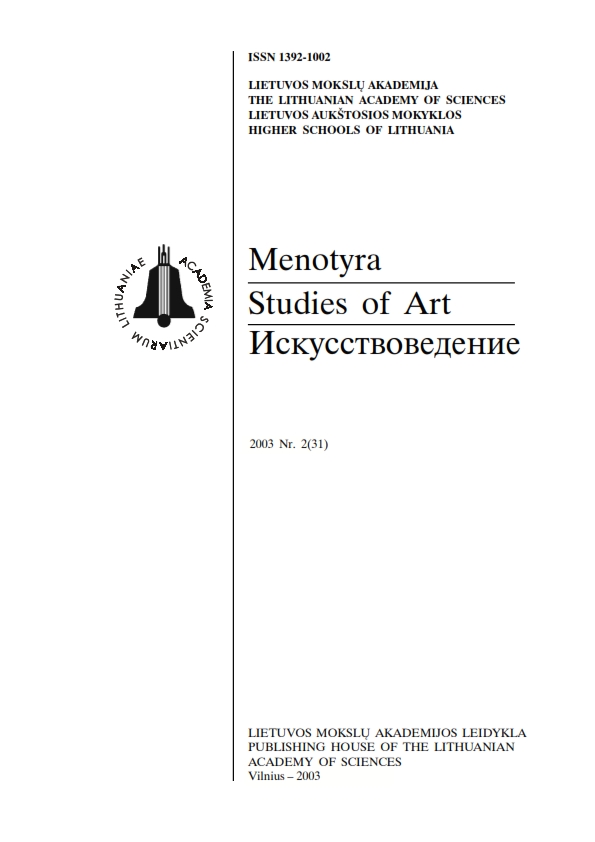Vaikas XVI-XVII a. Lietuvos Didžiosios Kunigaikštystės visuomenėje: galimi auklėjimo ir socializacijos modeliai
Child in the society of the 16th- and 17th-century Grand Duchy of Lithuania: possible patterns of education and socialization
Author(s): Jolita SarcevičienėSubject(s): Cultural history, Preschool education, School education, History of Education, 16th Century, 17th Century
Published by: Lietuvos mokslų akademijos leidykla
Summary/Abstract: Philippe Aries, one of the first researchers of childhood, stated that it was only in the 16th century that young people became regarded as children. However, the situation of children did not change. For a long time to come the family remained a tyrannical institution, which, instead of protecting and taking care of children, destroyed and limited their freedom. Past ages had seen only "bad" features of their nature, therefore children were subjected to strict discipline, and physical punishment was a norm.In Lithuanian historiography, children cannot boast the attention of researchers either. Using several political and social works and occasional writings as source material and building on the studies of Western researchers, the current article provides a brief overview of children's education and socialization in the Grand Duchy of Lithuania during the 16th and 17th centuries.As researchers have noted, the attitude towards children began changing in the 16th and 17th centuries, still the ancient view did not yield its position easily. The changes first affected the elite. However, parental attention and, especially, abundant love immediately received harsh criticism. In his treatise "De politica hominum societate", basing his arguments on Plutarch, professor of Vilnius University Aaron Alexander Olizarovius claimed that parental love was determined by nature rather than by mind. A number of scholars maintained that it is the parents who must teach children proper norms of behaviour and develop values. And the means for this are an example and ... a rod.Children experience the most intensive socialization during their earliest years, i.e. within the family. During this period, the child receives most attention from the mother; this might mean that it is she who will prepare children for their eventual role in society. Still society (and family) treated sons and daughters differently from their very birth. May this be related to the different gender-based tasks to be carried out in the community in the future? It must be noted that in most cases restricted education of girls and urging to put primary emphasis on their morality were not a deliberate wish to discriminate women. It was held that immoral books might destroy the fragile morality of women, if they reached their hands; such women could use the knowledge acquired by study for justification of their downfalls, because being weak by nature they might easily yield to heretical teachings. Restricted female education was regarded to benefit women themselves. Parents were encouraged to place emphasis on the morals of their daughters and to instil in them God-fearing, piety, diligence, and respect for parents. Boys and girls had to be equally taught religiousness, piety, obedience and good morals. But the gender equality should be limited to this only. Spinning and weaving were deemed the most suitable activities for girls and chastity was of the first importance.Meanwhile the aim of a man was to incorporate himself in society. Therefore sons had to be educated in such a manner as to become citizens and be useful not to the family alone, but to the Republic and the Church as well. Boys and youths were stimulated to become educated, sophisticated and active participants in society life.The family played an essential role from the birth of a child. Family members were those who served as models; they were the first - and sometimes the only - teachers. Lawyers, moralists, and educationalists attributed great importance to parents in forming the morals of the child and encouraged them taking account of both child's body and soul. The responsibility of the parents for the future members of society was highlighted as well, therefore they were required not to express excessive love, meet children's death as the will of God and adopt strict (although correct!) measures to curb naughtiness or to punish for inadequate efforts.The society used two models of education - for girls and for boys; these were implemented through different socialisation of children. The study shows that the nature of the parent-child relationship was determined by the individual-society relations rather than by the individuals themselves.
Journal: Menotyra
- Issue Year: 2003
- Issue No: 2(31)
- Page Range: 4-10
- Page Count: 7
- Language: Lithuanian

